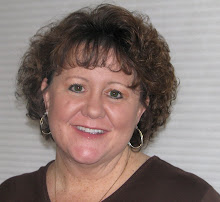Living in a small town is a lifestyle many in the Sandpoint community cherish. But it also comes with limitations. Just ask Paul Walsh.
Addressing a crowd at Sandpoint’s Panida Theater recently, Walsh spoke of the difficulty he encountered at age 50 when he was forced to change careers.
Having been in the construction business for several years, Walsh said he was no longer able to perform all the physical demands of his job and had to explore other options.
“Everything I knew how to do was physical,” said Walsh. “It became apparent I needed to go back to school.”
He looked into obtaining a degree as a radiology technician, which required him to take classes in Coeur d’Alene.
“Between clinics and school and the travel time, it consumed my life,” said Walsh. “If it weren’t for the travel time I would have had time for a part-time job.”
Walsh’s story is a familiar one. And thanks to a new program that is being researched by Sandpoint community members, people here may soon have the option of enrolling in courses locally that will allow them to earn a four-year degree or become trained in various trades such as construction, tourism or various sustainable life skills such as gardening.
The program, Communiversity, has already proven to be successful in meeting the diverse academic, vocational and personal learning needs of communities across the country.
Communiversity is a form of learning that brings together many generations in a learning environment. By sharing ideas and supporting one another, the entire community benefits from the learning experience.
On Jan. 21, Gus Whalen from Featherbone Communiversity in Gainesville, Ga., spoke to a crowd of approximately 150 Sandpoint residents about the benefits and logistics behind implementing a Communiversity in this area.
Whalen’s great-grandfather founded the Warren Featherbone Co. which has been in existence for 126 years. Gus is now chairman of the company and directs the Warren Featherbone Foundation of which the Communiversity is a part.
Whalen said the founding members of the Featherbone Communiversity include the multigenerational trio of Brenau University Department of Nursing, the Interactive Neighborhood for Kids and the Lanier Technical College Manufacturing Development Center, all of whom brought their own funding to the project. The model provides local support for those wishing to obtain education no matter what stage of life they are in.
Whalen shared with the audience the company’s history and how it overcame many difficult times to become an important part of the economic stability of not only its home state, but also the country. Crisis, he said, is always dangerous but is also something that captures one’s attention and provides people with opportunities. He promised the crowd that by the end of the evening they may not remember all he said, but they would begin to talk about how the ideas exchanged could transform the community.
“We are not independent people, we are interdependent,” he told the crowd. He likened a community to that of a group of Sequoia trees. Although they tower above the earth, the average root is just 3 feet.
“They grow best where we grow best – in a community,” said Whalen. “They hook their roots and support each other.”
By providing a place in a community where everyone from children to the elderly can learn, collaborate and explore new ideas, Whalen believes only good things can happen.
“It’s the idea that every citizen in the community is a student,” he told the crowd. “And what is so wonderful about this model is that there are no inhibitions to collaboration.”
Sandpoint High School teacher Connie Kimble was the driving force behind Whalen’s appearance. She heard him speak at a seminar she attended and was taken with what he had to say. She shared his ideas with a group of community leaders who have met over the past several months
A panel of representatives from Lake Pend Oreille School District, Bonner County Economic Development, the Pend Oreille Arts Council and several area colleges, including the University of Idaho and North Idaho College, answered questions from the audience following Whalen’s talk. Among the inquiries was what type of distance learning is available to Sandpoint residents. A representative from the University of Idaho said that it is their goal to offer live classes in Sandpoint and he would welcome the opportunity to partner with other area colleges so they do not duplicate but instead complement one another’s efforts.
Karl Dye from Bonner County Economic Development stated he is in favor of pursuing better facilities for distance learning. Lake Pend Oreille School District Superintendent Dick Cvitanich said the community is currently under-utilizing the schools in our area and he would welcome a chance to open them up to the community during periods of nonuse by the students.
One of the next steps in pursuing the concept of a Communiversity, said Kimble, is to seek input from the community.
“Local businesses are going to be critical in making this happen because we are all interconnected,” she said.
She is hopeful that this will be a pivotal step in making Sandpoint a thriving town for those who want to further their learning.
“In spite of economic issues, and maybe even as a result of some, we as a community can make our region an epicenter for exciting lifelong learning opportunities that will benefit everyone in Bonner County,” Kimble said. “We need this to stay viable and alive. Knowledge is power.”
For further information on the Featherbone Communiversity, go to www.featherbone communiversity.org
Subscribe to:
Post Comments (Atom)

No comments:
Post a Comment